Analytical skills Normal Reading Comprehension Worksheets for Ages 5-8
6 filtered results
-
From - To
Enhance your child’s analytical skills with our Normal Reading Comprehension Worksheets, designed for ages 5-8. These engaging worksheets promote critical thinking and enable young learners to interpret, analyze, and understand texts effectively. With a variety of fun activities tailored to different reading levels, children will develop their ability to make connections, summarize key ideas, and draw conclusions from what they read. From interactive story prompts to comprehension questions, these resources support early literacy and foster a love for reading. Unlock your child’s potential while nurturing their analytical thinking abilities—perfect for parents and educators dedicated to creating confident readers!
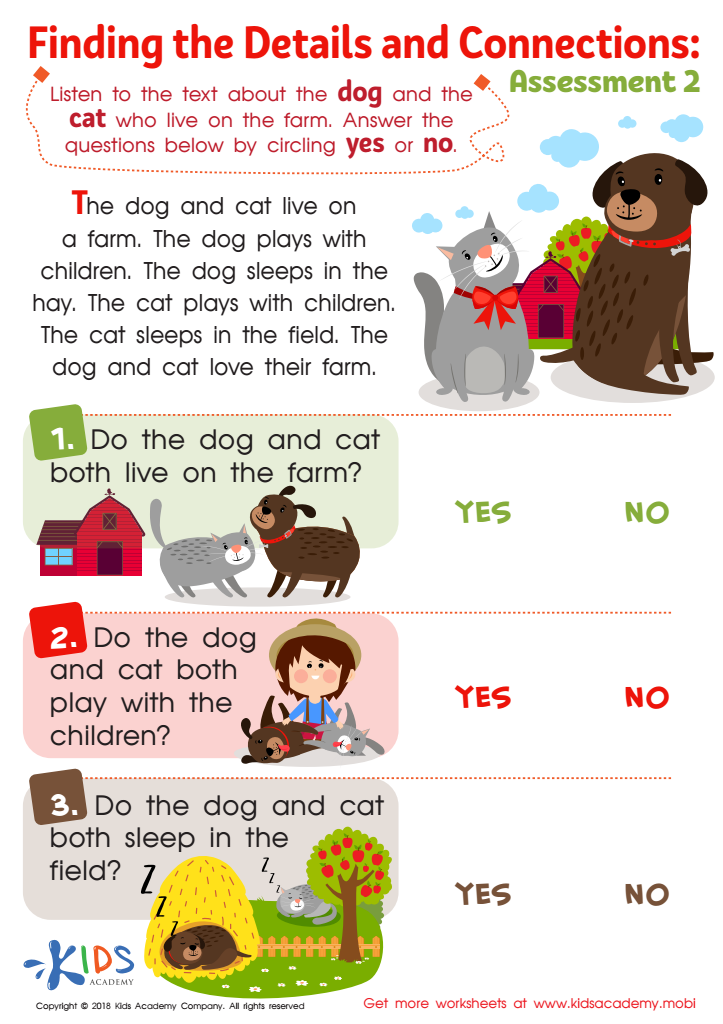

Finding the Details and Connections: Assessment 2 Worksheet
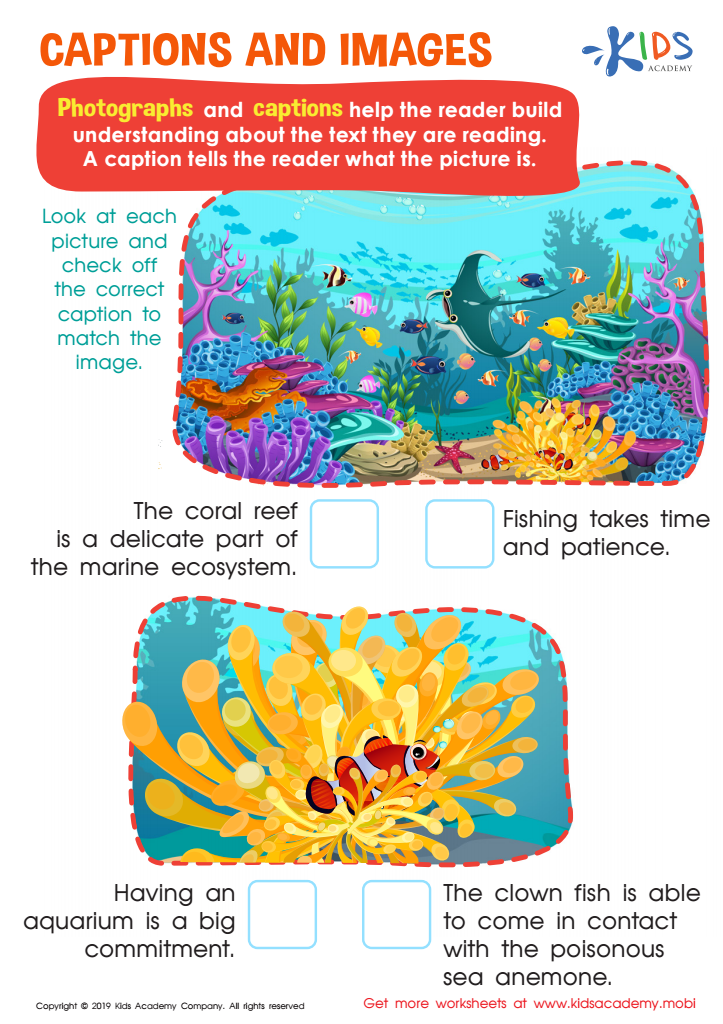

Captions and Images Worksheet
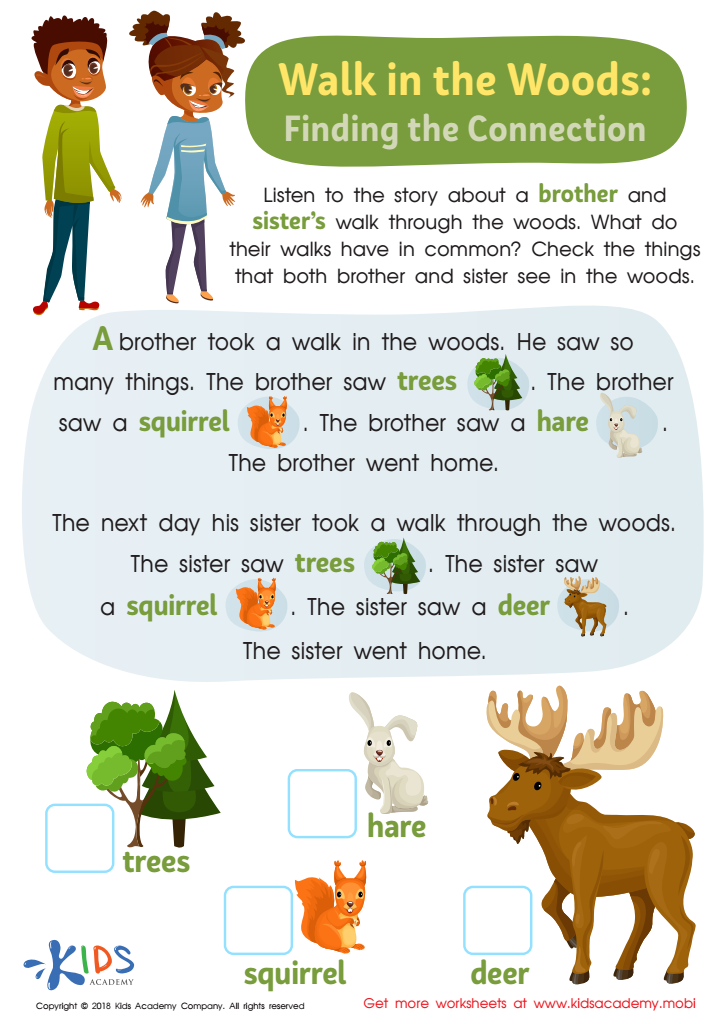

Walk In the Woods: Finding Connections Worksheet
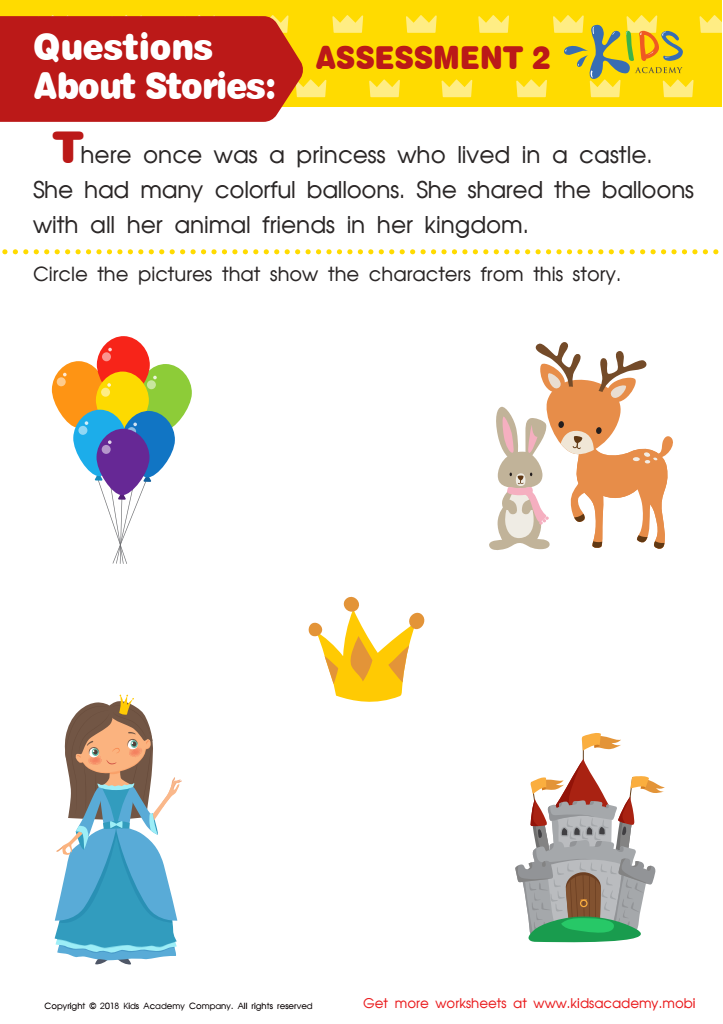

Questions About Stories: Assessment 2 Worksheet
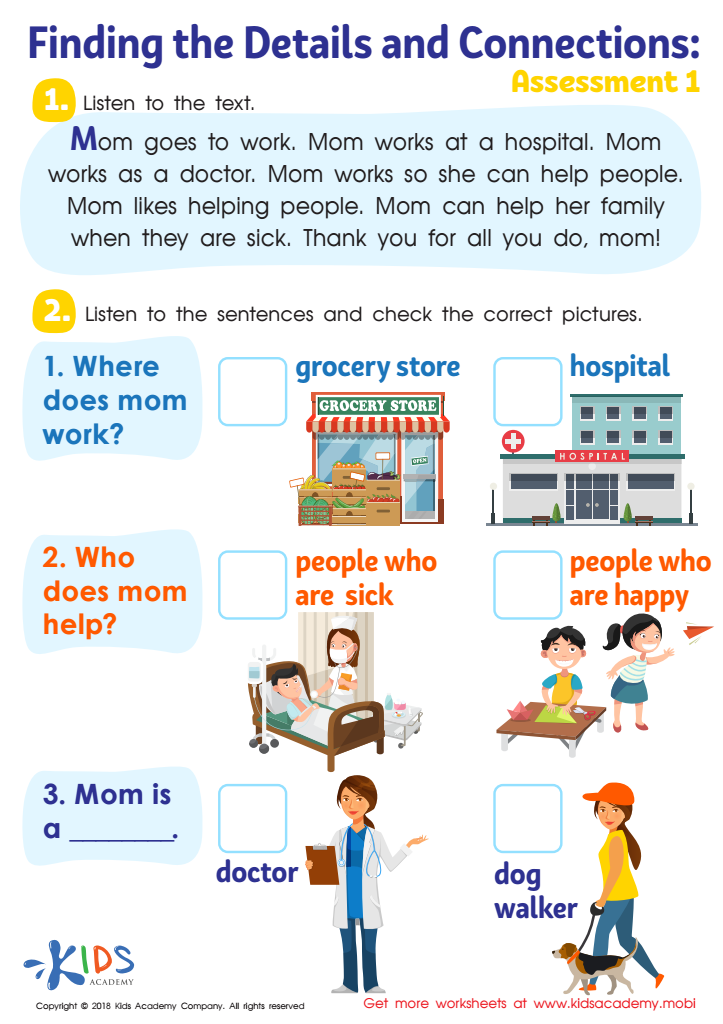

Finding the Details and Connections: Assessment 1 Worksheet
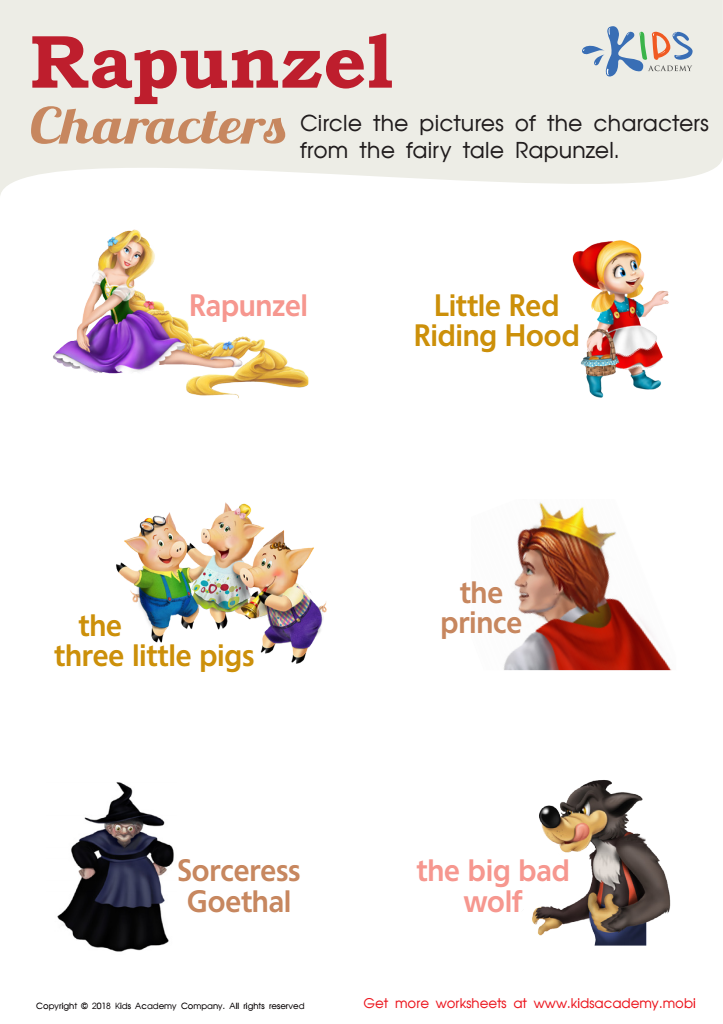

Rapunzel Characters Worksheet
Analytical skills and reading comprehension are crucial for children aged 5-8 as they set the foundation for lifelong learning. Developing analytical skills helps children to think critically, make connections, and solve problems. It enables them to not just absorb information but to engage with it, ask questions, and form their own opinions. In this developmental stage, children are naturally curious, and nurturing their analytical abilities can enhance their understanding of the world around them.
Reading comprehension, on the other hand, is essential for academic success and effective communication. When children can read and understand texts, they become better learners across subjects. Strong reading skills also empower them to explore various genres and connect narratives to their experiences, fostering imagination and empathy.
Teachers and parents play a vital role in cultivating these skills by providing diverse reading materials, engaging in discussions, and encouraging exploration of ideas. By prioritizing analytical skills and reading comprehension, caregivers help children not only excel academically but also develop essential life skills. These foundational competencies lay the groundwork for critical thinking and effective communication, skills that are invaluable throughout life and in all future educational journeys.
 Assign to My Students
Assign to My Students





















